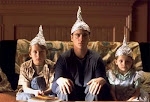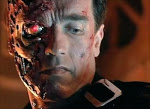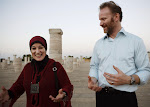There are three progressive levels of greatness:
1. Saved: Wanting to look great.
Hilary Faye (Mandy Moore) of the movie Saved wants to be admired even though there is basically nothing admirable about her. On a basic level she knows this but, on another basic level, looking the part is her top priority.
2. The Quick and the Dead: Wanting to be great.

In The Quick and the Dead "The Kid" (Leonardo DiCaprio) wants to prove that he is the greatest gunslinger in the west (especially better than his dad). This level of greatness is another form of self-glorification, but at least there is some kind of measurable accomplishment required here.
3. Kingdom of Heaven: Lifting a Cause that is great (especially a cause that is greater than oneself).
Balian (Orlando Bloom) risks life and limb to follow his conscience. This results in him getting banged up a lot as he stands up for those who can't defend themselves. I appreciate the way he is boldly confident all the while never thinking too highly of himself. Out of the three kinds of greatness, Balian seeks the best kind.
Unfortunately, Greatness #3 can lead to an obscure, oftentimes uncomfortable life, which will end in a less than glorious death. For this reason Greatness #3 is the most difficult kind of greatness to appreciate -- it seems like foolishness to our natural inclinations.
More to the point: The greatest people in the world demonstrate why God is great.

































